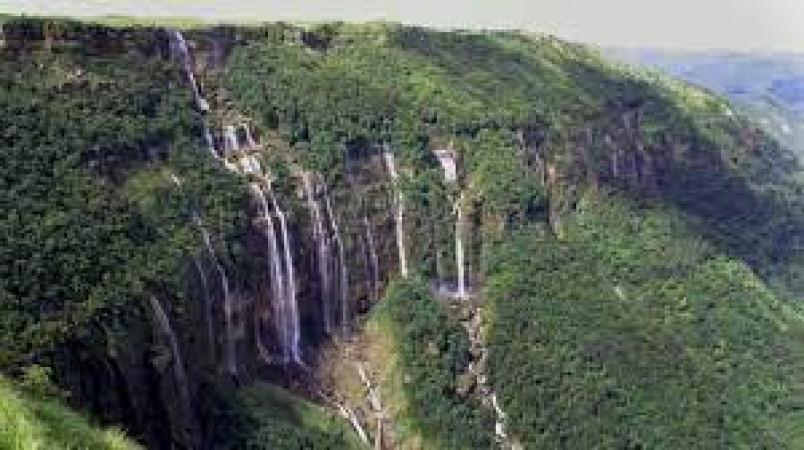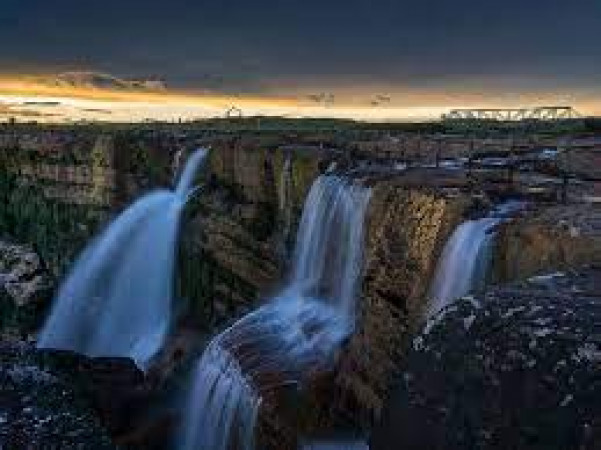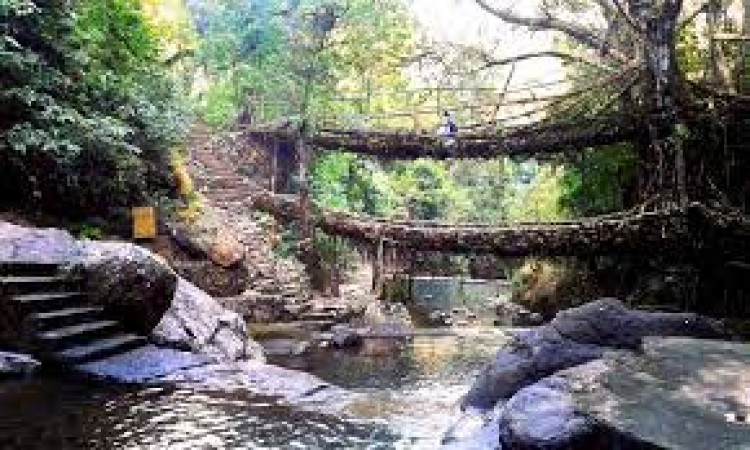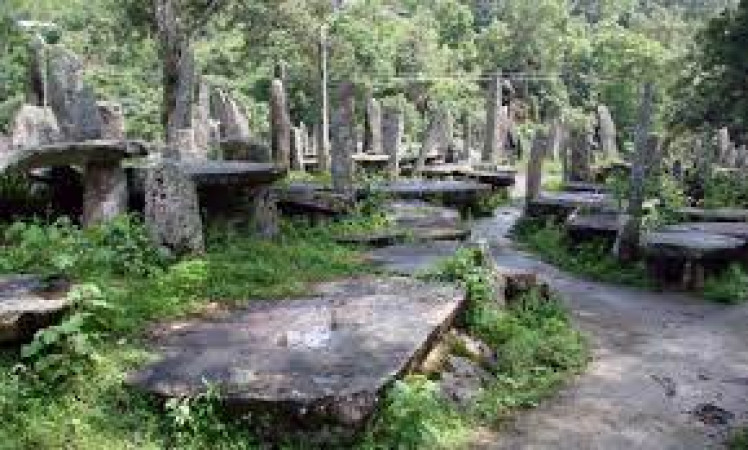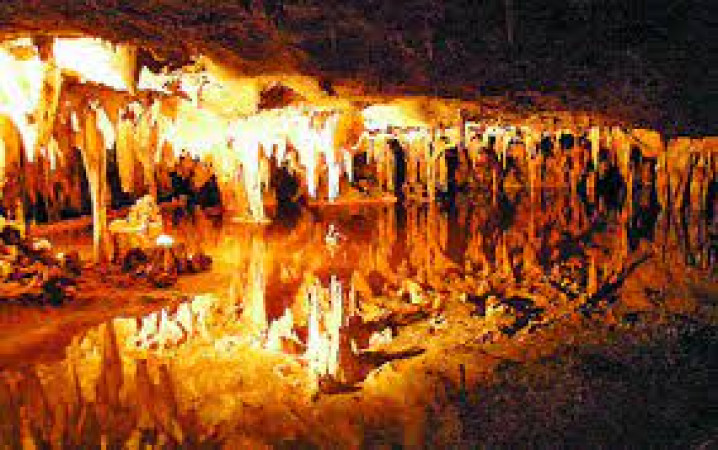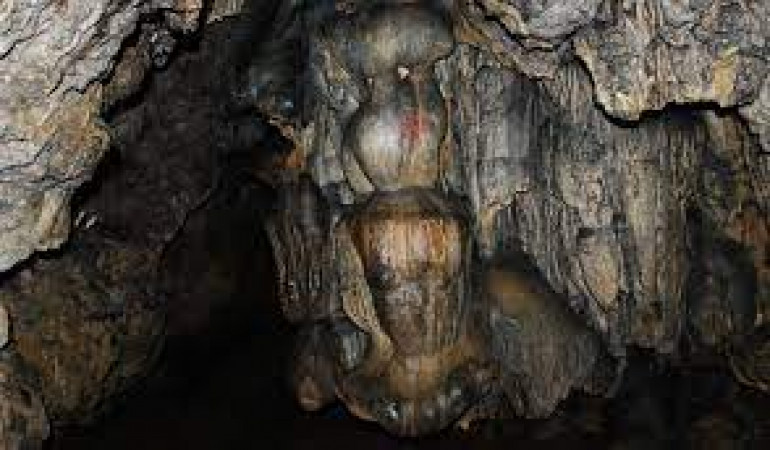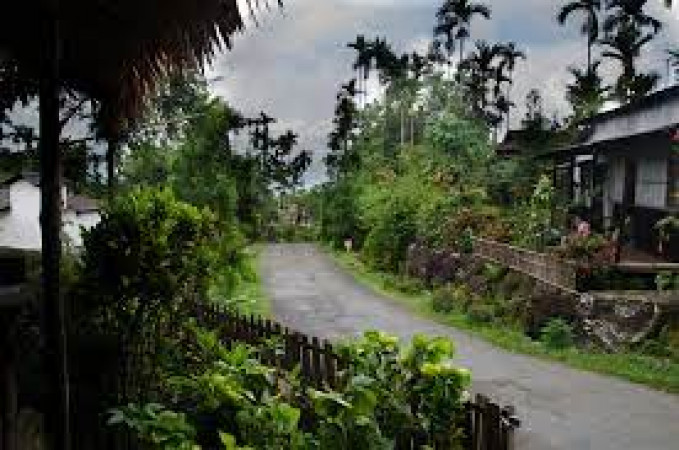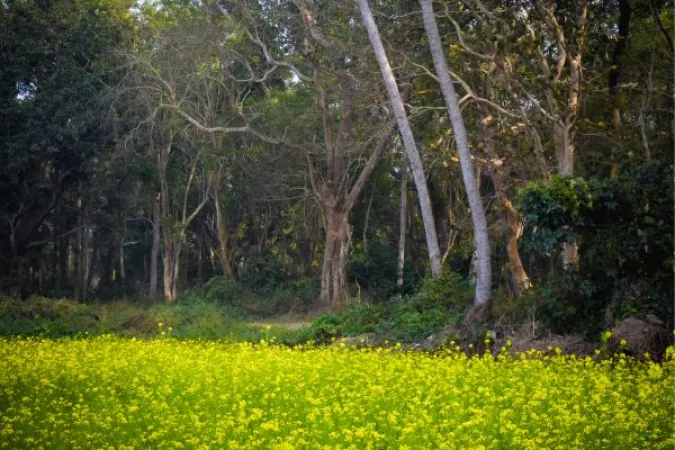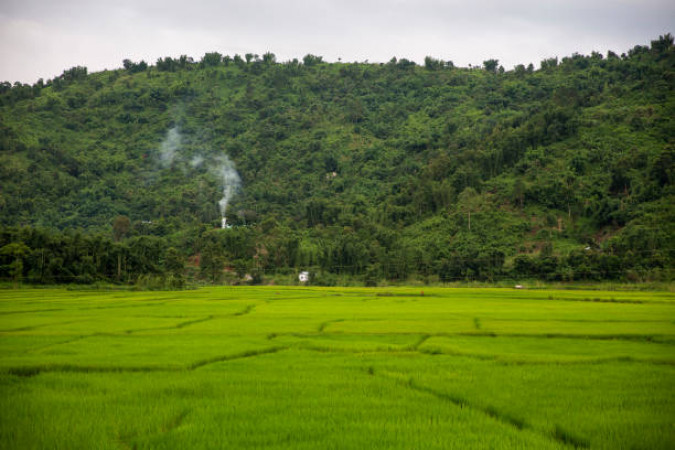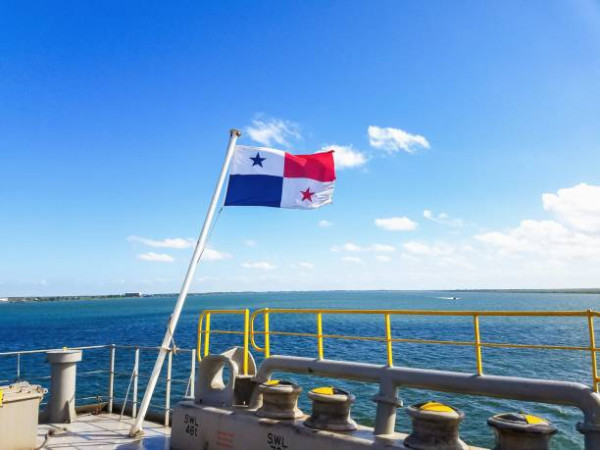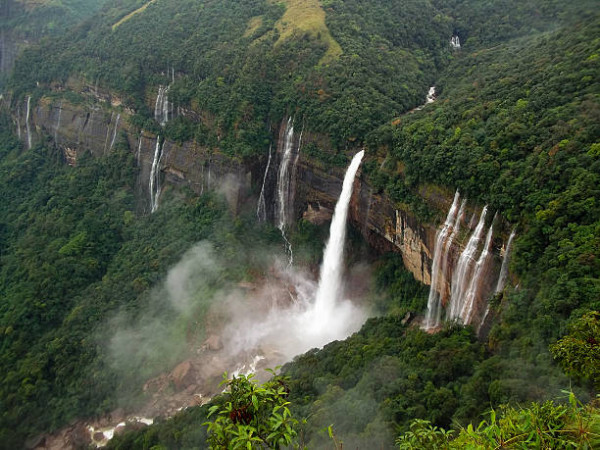Cherrapunjee Travel Guide
Cherrapunjee, also known as Sohra, is a picturesque town located in the northeastern state of Meghalaya, India. Famous for being one of the wettest places on earth, Cherrapunjee boasts stunning landscapes, lush greenery, and cascading waterfalls. The town holds historical significance as it was a British colonial outpost and is home to the Khasi tribe, known for their unique living root bridges.Top Attractions in Cherrapunjee
- Living Root Bridges
- Nohkalikai Falls
- Mawsmai Cave
- Double Decker Living Root Bridge
- Seven Sisters Falls
Cherrapunjee is Famous for
Its living root bridges are the most famous attraction in Cherrapunjee, where the Khasi tribe has ingeniously trained the roots of rubber trees to form natural bridges over rivers.Top Attractions in Cherrapunjee
- Explore the mesmerizing Living Root Bridges
- Experience the breathtaking Nohkalikai Falls
- Discover the mysterious Mawsmai Cave
- Admire the unique Double Decker Living Root Bridge
- Marvel at the majestic Seven Sisters Falls
What's Great about Travelling to Cherrapunjee?
- Perfect for nature lovers and adventure seekers
- Opportunity to witness unique tribal culture
- Unmatched scenic beauty and lush green landscapes
What's Not So Great about Travelling Cherrapunjee?
- Challenging terrain and limited infrastructure
- Heavy rainfall can disrupt travel plans
- Limited options for luxury accommodations
Travel Tips for Cherrapunjee
- Carry rain gear and suitable footwear for trekking
- Respect local customs and traditions
- Book accommodations in advance due to limited options
Important Cherrapunjee trip information
- Ideal Duration: 2-3 days to explore the main attractions
- Best Time to Visit: October to May for pleasant weather
- Nearby Airports and Railway Stations: The nearest airport is in Guwahati, and the closest railway station is in Guwahati as well.
Top 15 Places to visit in Cherrapunjee
FAQ's on Cherrapunjee
Q1: What is the best time to visit Cherrapunjee?
The best time to visit Cherrapunjee is during the winter months from November to February when the weather is cool and pleasant. The monsoon season from June to September offers lush greenery and stunning waterfalls, but heavy rainfall may affect travel plans. Consider visiting during the shoulder seasons of March to May or October for a balance of good weather and fewer tourists.
Q2: Do I need a visa to travel to Cherrapunjee?
Most visitors to Cherrapunjee will require a valid Indian visa to enter the country, unless they are from a visa-exempt country. It's recommended to check the specific visa requirements based on your nationality and travel purpose. Make sure your passport is valid for at least six months beyond your intended stay.
Q3: What are the must-visit attractions in Cherrapunjee?
Cherrapunjee is known for its living root bridges, Nohkalikai Falls, Mawsmai Cave, and the Double Decker Living Root Bridge. Explore the Seven Sisters Falls, Thangkharang Park for panoramic views, and experience the local Khasi culture in the surrounding villages.
Q4: Is Cherrapunjee a safe place to travel?
Cherrapunjee is generally a safe destination for travelers. However, it's advisable to stay cautious, especially during monsoon season due to slippery roads and occasional landslides. Avoid venturing into restricted areas and follow local advice for safe exploration.
Q5: What is the local currency in Cherrapunjee and can I use credit cards?
The Indian Rupee (INR) is the local currency in Cherrapunjee. ATMs are limited in the area, so it's advisable to carry enough cash. Credit cards may not be widely accepted, especially in smaller establishments, so it's recommended to have cash on hand.
Q6: What is the local cuisine like in Cherrapunjee?
Cherrapunjee offers a variety of traditional Khasi dishes including Jadoh (rice cooked with pork meat), Doh Khleh (spicy pork salad), and Nakham Bitchi (fermented soya bean chutney). Vegetarians can try Jhur Sideh (mixed vegetable stew) and Pumaloi (sweet rice dessert).
Q7: What transportation options are available in Cherrapunjee?
Transportation options in Cherrapunjee include local buses, shared taxis, and private cabs for getting around. Renting a car or hiring a local guide can be convenient for exploring the attractions. Walking and hiking are also popular ways to discover the scenic beauty of the region.
Q8: Are there any cultural norms or etiquette I should be aware of when visiting Cherrapunjee?
When visiting Cherrapunjee, it's important to respect the local Khasi culture. Dress modestly, especially when visiting religious sites. Seek permission before taking photographs of people, and avoid littering in the natural surroundings. Greet locals with a smile and engage with them respectfully to learn more about their customs.
Q9: I am a travel agent. How can I buy travel leads of Cherrapunjee?
Register yourself as a travel agent at agents.tripclap.com and then you can buy travel leads to Cherrapunjee once your account is approved. For more details contact our support team at +91-8069186564 or support@tripclap.com
